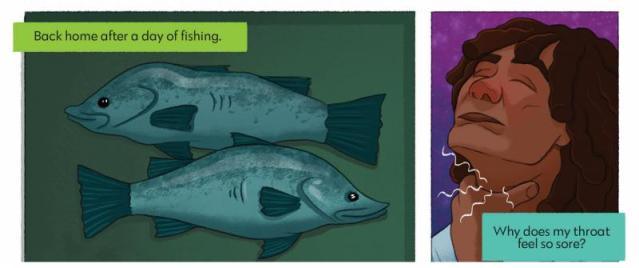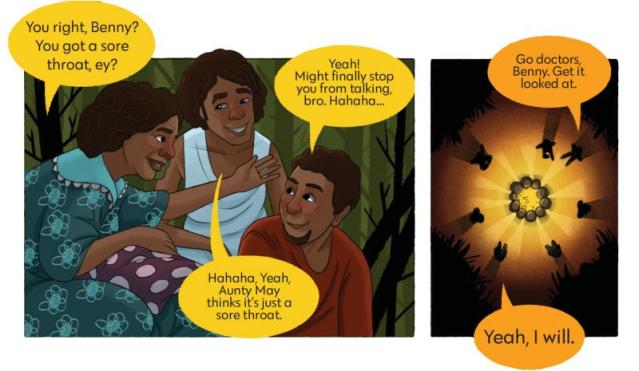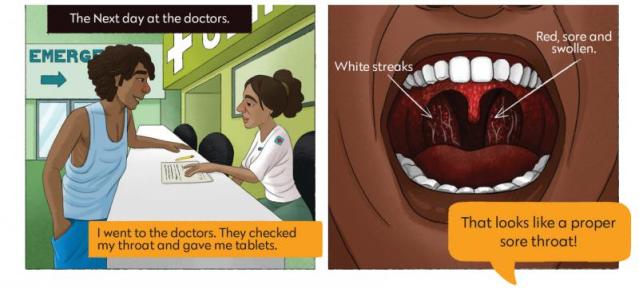What is rheumatic fever?
Rheumatic fever is a sickness that happens in some people after they have a Streptococcal (strep) germ. This germ causes sore throats and skin sores. Sometimes, after causing a sore throat, the strep germ can cause the body's germ defence system (immune system) to start attacking your joints, heart, brain and skin - this is called rheumatic fever.
Healthcare professionals often call this ARF, which stands for acute rheumatic fever. When someone has ARF, this can cause fevers, pain, and swelling in the joints. Sometimes, it can hurt so much that it is difficult to move or walk.
Your team of healthcare professionals will have done a number of tests to diagnose rheumatic fever. These include:
- blood tests
- swabbing your throat to see if you still have the strep germ
- a special heart scan called an echocardiogram to see if your heart has been damaged by ARF



My Rheumatic Fever & Rheumatic Heart Disease Journey Introduction
Checklist - Going Home From Hospital After My Rheumatic Fever
Taking Care Of My Health After A Diagnosis Of Rheumatic Fever
What Exactly Is Rheumatic Fever? (You are here)
My Rheumatic Fever & Rheumatic Heart Disease Journey In Pictures
What Exactly Is Rheumatic Heart Disease?
How Will My Rheumatic Fever Be Managed?
What Other Ways Can I Look After My Health After Rheumatic Fever?
When Can I Return To Doing The Things I Enjoy After Rheumatic Fever?
Will I Need Regular Medical Check-Ups After Rheumatic Fever?
Acknowledgements
This information is adapted from the rheumatic fever and rheumatic heart disease booklet produced by the Rheumatic Fever Project Team, Te Whatu Ora - Counties Manukau, 2022.
References
Rheumatic fever and rheumatic heart disease booklet (PDF, 9.94 MB). Te Whatu Ora - Counties Manukau, 2022.
